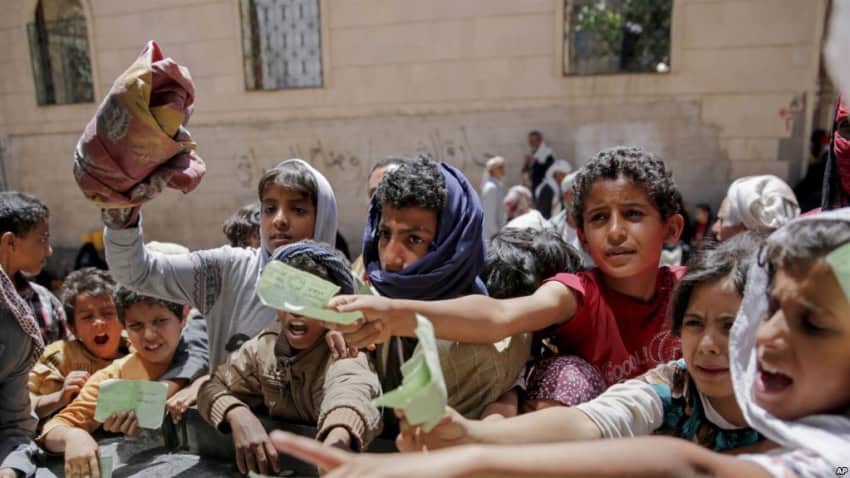SANAA – The United Nations humanitarian chief warned on Friday that the fight against famine in war-torn Yemen is being lost, sending shock waves across the rights groups, wary of the deteriorating situation.
Mark Lowcock termed the situation ‘bleak’ and told the Security Council it ‘has deteriorated in an alarming way in recent weeks’.
“We may now be approaching a tipping point, beyond which it will be impossible to prevent massive loss of life as a result of widespread famine across the country,” he warned.
Lowcock elaborated the situation in point blank remarks saying, we are already seeing pockets of famine-like conditions, including cases where people are eating leaves.

The UN official also cited two developments as hindering the aid operation, including a ‘dramatic economic collapse’ that has reduced the value of Yemen’s currency by some 30pc, and intensified fighting around the Red Sea port of Hodeida, which is a key medium for deliveries of food, medicine and other vital supplies.
Lowcock said that during the first six months of this year, the UN and humanitarian groups provided assistance to more than 8m of the most vulnerable Yemenis – who don’t know where their next meal will come from.
There has also been an “unprecedented increases” in the price of fuel, he said.
Moreover, Lowcock said, intensified fighting in recent weeks around Hodeida is ‘choking the lifeline’ for delivering aid to the needy ones.
The UN official said armed groups have occupied humanitarian facilities, and attacks have resulted in dozens of deaths and serious damage to public health and water facilities as well as other aid infrastructure.
“We estimate that an additional 3.5m people may soon be added to the 8m already severely food insecure,” he added.
Lowcock continued that the UN continues to push to scale up its aid operation but urged the Security Council to press for immediate measures to stabilise Yemen’s economy and support the exchange rate.
He also urged that ports be kept open, warning that the lifeline through which the aid operation runs now hangs by a thread.
The conflict in Arab world’s poorest country, Yemen began with the 2014 takeover of the capital, Sanaa, by Houthi rebels, which overthrew the internationally recognised government led by Prime Minister Mohammed Basindawa and President Abdrabbuh Mansur Hadi.
A Saudi-led coalition allied with the government has been fighting the Houthis since 2015 with retaliatory missiles being fired towards the Saudi cities, without any gain.
The civilians are at the heart of the crisis, worst affected by the standoff which has killed over 10,000 people and sparked a cholera epidemic.
Yemen is facing the world’s worst humanitarian crisis with 75 per cent of its 29 million people in need of assistance.














